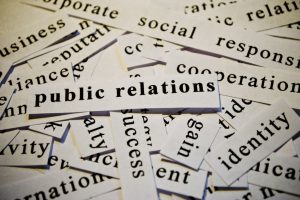
The Golden Rule For PR Professionals — Think Nationally, Act Locally!
“For us to grow globally, it’s not enough to just be an exporter. We have to be a creator” – Bob Iger
While national media placements are often perceived as “sexier” than local hits, in today’s hyper-local marketing communications world it’s critical for PR people to generate results in both! In fact, for some companies and brands, local coverage can be the most influential on target audiences, and ultimately on the business.
As a PR agency located in New Jersey, we often represent clients looking to reach customers in our region, but the media landscape here presents some unique challenges.
As you probably know, New Jersey is “sandwiched” by two of the largest media markets – New York on the north-end and Philadelphia to the south. So when it comes to public relations and broadcasting in particular, there are few network affiliates actually based in New Jersey. Mainly, there are independent stations for PR professionals to pitch.
In terms of print media, while there are lots of dailies, community papers and local Patches, two of the most influential newspapers in New Jersey are based out-of-state. The NEW YORK TIMES and PHILADELPHIA INQUIRER are widely read by New Jersey residents who might commute to these markets to work or have moved from these cities to the New Jersey “burbs,” thereby making these papers key influencers in the state.
In order to properly execute public relations in New Jersey, every expert requires the unique ability to identify and promote PR stories that are relevant to local audiences, while also being able to influence some of the largest, most dominant media outlets in the country. Here are some tips for success:
- Close the national – local loop – Always focus on developing story angles that showcase a local element while demonstrating a national trend.
- Make the message relevant – What makes the topic of value to local-market audiences? Does it transfer to a national audience?
- Incorporate universal examples– For your “proof points,” which are critical for gaining media coverage, avoid using examples that are exclusive to New Jersey. Instead, use human interest or business success stories that could apply to any market, even if they occurred locally.
- Match the message with the channel – As the Internet and e-mail connect people around the world, local messages now have more national, or even global, reach. So, this balance of global and local communications requires special clarity and consistency for your messages.
We all agree that PR is about reputation, the result of what you do, what you say and what others say about you. A brand that positions itself as a valued member of a community, regardless of its size, is a brand that will see the benefits, both locally and nationally.
What about you? What are your insights when it comes to local, national or global PR?



